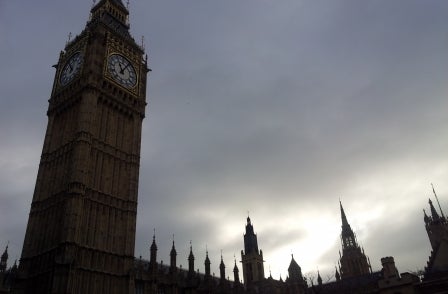
We've made huge progress on the Save Our Sources campaign this week but there is a long way to go.
With chairman of the Home Affairs select committee Keith Vaz on side, police use of RIPA against journalists is finally going to get some serious scrutiny.
He hit the nail on the head when he said that Kent Police has “struck a serious blow against press freedom” and “they have put every potential whistleblower from every walk of life in jeopardy” by grabbing the phone records of journalists working for the Mail on Sunday.
The Rotherham child abuse scandal, MPs’ expenses, Mid Staff NHS, even the News of the World hacking scandal. All these stories were exposed by journalists with the help of public sector whistleblowers.
No honest politician wants such individuals to be silenced and public authorities’ use of RIPA against journalists risks doing just that.
The Interception of Communications Commissioner’s Office (IOCCO) has been closely following Press Gazette's Save Our Sources campaign and petition and yesterday it announced an inquiry into police use of RIPA.
It is a major breakthrough. Up until now there appears to have been no clear record kept anywhere (even at police forces themselves) of RIPA requests made against journalists in apparent contravention of Article 10 of the Human Rights Act (freedom of expression).
Now we should finally find out how deep this scandal goes.
Our petition tells the IOCCO:
Urgent action is needed to find out how many times public authorities have used RIPA to obtain the phone records of journalists and to ensure new guidelines are in place to prevent this happening in future.
Well half of that request has now been acted upon, but we need to keep the pressure up to ensure that there is follow-through on part two.
Interception Commissioner Paul Kennedy said yesterday that the communications data code of practice which governs use of RIPA “contains no advice on dealing with professions that handle privileged information”.
That code of practice is set to be put out to consultation later this year. At that point every journalist in the country needs to make the same point as forcefully as they can: RIPA should not be used by public authorities to spy on journalists and their lawful sources, requests for journalistic material should instead be put to a judge who is best placed to consider the normally overriding public interest in protecting the confidentiality of journalistic sources.
That Downing Street said yesterday the Prime Minister believes the “right oversight mechanisms" are in place for monitoring the use of RIPA show how far we have to go.
The fact that the IOCCO currently has no idea how many times public authorities have used RIPA against journalists shows how far the oversight process has broken down.
The Home Office said yesterday: “As a result of the recent Data Retention and Investigatory Powers Act, the relevant codes of practice will be strengthened to make it clear that specific consideration should be given to a communications data request involving those in sensitive professions, such as journalists.”
But Kent Police and the Met have already shown they can’t be trusted to mark their own homework when it comes to authorising RIPA requests.
 The Met used these anti-terror fighting powers to track down three officers who passed on information to the press about an incident where a bumptious cabinet minister swore at one of the policeman who was paid to protect him.
The Met used these anti-terror fighting powers to track down three officers who passed on information to the press about an incident where a bumptious cabinet minister swore at one of the policeman who was paid to protect him.
They broke no law, it was an internal disciplinary matter.
Beyond RIPA, we saw in the recent trial of Sun reporter Vince Soodin that prosecutors want to criminalise unauthorised contact between police officers and journalists.
The trial heard that The Sun paid Soodin’s police source £500 for a tip-off that a child was attacked by a fox at a Brighton school. The judge said that unsolicited contact did not amount to a conspiracy, but that the jury had to believe there was an ongoing aggrement.
The prosecution found no proof of further payments, but said that subsequent contacts between the pair nonetheless constituted a criminal offence on the part of the journalist (the jury could not agree a verdict and Soodin is facing a retrial).
The RIPA issue is part of a much wider problem whereby the police are seeking to criminalise unauthorised contact between journalists and officers.
Press Gazette will continue this campaign on this issue until clear protection is in place to protect any sources who make disclosures which are in the public interest.
Sign our petition
Email pged@pressgazette.co.uk to point out mistakes, provide story tips or send in a letter for publication on our "Letters Page" blog
